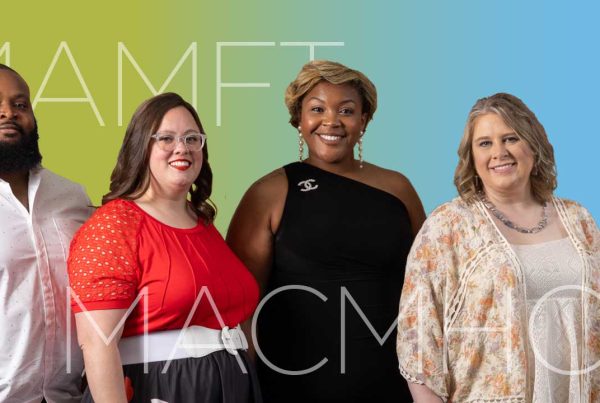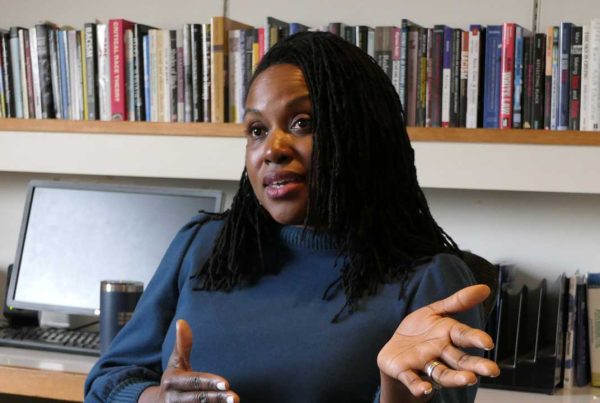Becoming an Inclusive and Affirming Therapist
In today’s counseling spaces, spirituality is often minimized — or overlooked entirely. Yet for many clients, it’s deeply intertwined with healing. Whether rooted in faith, identity, or existential meaning, spirituality shapes how people experience pain, growth, and transformation.
Inclusive and affirming practices make room for the whole person. It’s an approach that centers empathy, welcomes difference, and acknowledges that every person carries their own beliefs, wounds, and questions into the counseling room.
At Christian Theological Seminary (CTS), the Master’s in Clinical Mental Health Counseling (MACMHC) program equips students to become therapists who offer compassion-centered counseling and culturally responsive care. This isn’t about pushing belief systems — it’s about presence, ethics, and the capacity to listen well.
Learn how CTS prepares you to offer inclusive therapy and develop multicultural counseling competence to serve diverse populations.
What Sets CTS Apart in Addressing Multicultural Issues in Counseling
For clients, the need to talk about spirituality in therapy may not be obvious at first — but that doesn’t mean it isn’t there.
“Spirituality is never not present in the room,” said Dr. Christina J. Davis, clinical professor of pastoral theology and marriage and family therapy. “It may not be present in a verbalized way, but it’s there. And if it’s not engaged — if the clinician is not trained to know how to lean into it, to be curious about it, to welcome it — the client loses.”
At CTS, the foundation of mindful and multicultural counseling is self-awareness. “We’re asking students to look at themselves first,” said Dr. Nicole Robertson, assistant professor of clinical mental health counseling and director of the program. “What do I bring into the room? What are my biases, my blind spots? Who am I not comfortable sitting with yet?”
Bryan Votaw, director of the CTS Counseling Center and clinical supervisor in the post-graduate residency program at CTS, affirmed this need for inner work.
“To be an affirming therapist does require self-reflection,” he said. “It’s about trying to make a space safe for someone who’s different from you so that they can come with their whole authentic self.”
Building Affirming Therapy Skills Through Community
Becoming an inclusive counselor doesn’t happen through theory alone — it happens in practice. At CTS, students develop the tools to support counseling multicultural and diverse populations through dialogue, supervision, and direct client work.
“There is no checklist,” Davis said. “What we’re cultivating is an ethic — an ethic of care, an ethic of curiosity, an ethic of humility.”
In community, students learn how to pause, reflect, and grow. “One of the most powerful tools we have is the classroom,” Robertson shared. “It’s a place where we can ask, ‘What just happened in that role play? What came up for you?’ That’s where the growth happens.”
Votaw described this as a process of becoming. “It’s hard, agonizing work,” he said. “But that’s how we really create affirming therapists who are interested in doing the work of justice and loving our neighbor.”
Practicing Compassion-Centered Counseling With Integrity and Care
Affirming therapy at CTS means sitting with people across lines of difference — with care, not correction.
“If I can’t hold a client’s identity with care — whether that’s their sexual orientation, their race, their theology — then I can’t be present with them. That’s the work,” said Robertson.
Votaw noted that inclusive therapy must be intentional. “There’s a difference between being intentionally affirming and having something shift all the way inside of us,” he said. “It’s a lifelong process.”
Students in the Master’s in Clinical Mental Health Counseling program explore these themes in coursework, group supervision, and clinical practice. They work with diverse clients in the CTS Counseling Center, navigating real-life conversations around identity, faith, trauma, and belonging.
Learn to Foster BIPOC Mental Health and LGBTQ+ Inclusion
CTS offers more than a typical seminary counseling degree. It fosters personal growth, meaningful dialogue, and deep listening.
“We have students from all different backgrounds,” Robertson said. “Some are Christian. Some are not. Some are deconstructing their faith. Some are exploring it for the first time.”
The CTS learning environment is intentionally built to support BIPOC mental health and counseling with LGBTQ+ clients, communities of color, and others who’ve been harmed or marginalized by traditional religious spaces. “There has to be an environment of safety in order for one to be vulnerable,” Votaw said. “And behind those defenses are the things that wreak havoc.”
To help create that safety, students participate in conversations with community partners, including Indiana Youth Group (IYG), which regularly leads practicum kickoff sessions on LGBTQ+ mental health and the history of queer communities in Indiana. These experiences, along with mindful and multicultural counseling practices, center listening, humility, and respect.
“Our work is to become people who welcome,” said Davis. “Clients know when they’re being welcomed — and when they’re being tolerated.”
Develop Core Skills in Multicultural Counseling Competence
To offer inclusive care, students must be able to bridge clinical expertise with cultural and theological humility. That’s why CTS places special emphasis on helping students build practical, transferable skills — not just in counseling technique but in navigating real-world complexity. These include:
- Assessing and honoring a client’s spiritual worldview without assuming shared beliefs.
- Addressing religious or spiritual trauma with care.
- Understanding and applying multicultural issues in counseling across diverse settings.
- Using inclusive language that respects diverse identities and traditions.
- Building trust across cultural, racial, gender, and theological differences.
The CTS graduate program also encourages students to deepen their understanding of social systems, power dynamics, and ethical frameworks — all of which shape the counseling relationship and the client’s lived experience. These are essential skills for anyone wondering, “What degree do I need to be an LGBTQ therapist?” — or how to make a real difference in BIPOC counseling.
Why Choose CTS to Become an Affirming Therapist?
At CTS, being an “affirming therapist” doesn’t mean offering blanket affirmation. It means honoring human dignity, challenging systemic harm, and approaching every client with cultural humility. As Dr. Robertson notes, “Words build our world” — and affirming must be expansive enough to include race, class, gender, faith, and more.
The MACMHC program at CTS is grounded in this understanding and is designed for individuals who feel called to integrate ethical and inclusive therapy with deep spiritual and cultural awareness. It’s especially well-suited for those who want to support clients whose identities, including race, sexuality, and religious background, have been misunderstood or marginalized in traditional settings. This program may be a good fit for:
- Career changers seeking a graduate counseling degree rooted in clinical excellence and spiritual care.
- Those passionate about compassion-centered counseling that affirms diverse identities.
- Individuals from underrepresented backgrounds seeking to support their communities.
- People committed to offering care that reflects multicultural counseling competence.
- Aspiring counselors who value deep reflection, justice-oriented practice, and cultural humility.
Mindful and Multicultural Counseling in Action
What students learn at CTS doesn’t stay in the classroom — it becomes part of how they live and lead. Graduates of the Master’s in Clinical Mental Health Counseling program bring their training to clinical practice, congregational care, nonprofit leadership, and more.
Many go on to serve as licensed professional counselors and affirming therapists. Others work in advocacy roles, helping dismantle the systemic barriers that keep marginalized voices from being heard and healed.
What unites them all is a shared commitment to healing through connection — and a belief that every person’s story is worthy of care.
Start Your Journey to Becoming an Affirming Therapist
A Master’s in Clinical Mental Health Counseling from Christian Theological Seminary prepares you to serve with clarity, compassion, and multicultural counseling competence. Through reflective learning, clinical practice, and spiritual integration, you’ll be equipped to walk alongside clients from all backgrounds and belief systems.
Begin your formation as an affirming therapist — and make a positive difference in the lives of those you serve.






